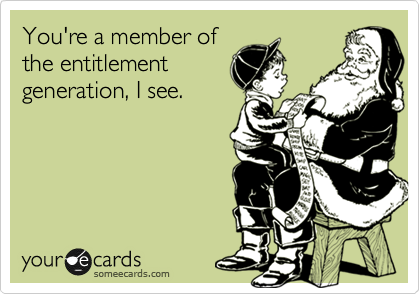
I exercise extensive friendliness to my colleagues and friends. I never say no to a coworker who needs a favor and I’m the single millennial keeping USPS in business with snail mail birthday cards. It’s a notable part of my professional identity. In fact, my bio has been “chipper californian” ever since Internet bios have been around.

my twitter bio
But recently, as I was sympathizing with a friend as she talked through the strife between her and her manager, I realized this behavior was missing from one crucial professional relationship - that with my managers, past and present.I’ve had eight software engineering managers, each one different from the next. However, after similar experiences with several of these managers, I discovered I had a proclivity to find fault with them much more often than I would my peers. One day, these grievances reached their climax. After a stressful top-down planning cycle and a disagreement over hiring left me feeling frustrated and ineffectual, I lashed out at my manager on Slack telling them that they had ruined my day. Oof. Needless to say, I shattered what was already a splintered relationship.
In the software engineering industry, it is too easy to feel entitled to our positions - that we are doing everyone around us a favor by choosing to work at our companies. Attrition is expensive, good talent is hard to come by and many of us believe that we are the carriers of exceptional quality. Because we hold this threat of leaving, we expect our managers to recognize and reward our accomplishments, to constantly shower us in accolades.

On top of that, cross-functional teams’ requests, company initiatives and hiring processes are simultaneously pulling a manager in fifteen different directions. And if they are doing their job well, we employees will be shielded from that chaos. Because this is happening unbeknownst to us, it can appear that our manager is full of free time and should be tending to our needs, many of which are out of their control or we never even communicated. And if not, then we place on them the burden of disappointment and subsequently label our poor manager, who cannot read minds, as insufficient. In essence, by setting unrealistic expectations, especially considering that we are not their singular focus, we dehumanize them by creating this image of unachievable perfection that is guaranteed to result in their failure.
After spending more time in management and consequently, a colossal amount of time and energy being a good manager to every single report, it was shocking to experience how little I got in return. I would spend hours crafting thoughtful career guidance and expend all of my emotional energy to deeply understand the unspoken needs of my reports, leaving me a shell of a human by 5pm every day. And still, someone would complain about a missing edge case in a design spec.Luckily for me, I have never had to manage myself. Having experienced this managerial drudgery, I cannot imagine a worse feeling than having one of my reports, whose career I nurture and life I care about, express such extreme discontent and ungratefulness as I did.Unfortunately for those around me, it took me having been both the thankless report and the tortured manager to understand how sacred this relationship is, and why it should be treated with even more care than that with your friendly peers. We are all doing the best we can, and making the experience positive for everyone will only help everyone in the end.
Now before each 1:1 with my manager, I consider:
- How can I be an employee that managers want on their team?
- How can I appreciate and learn from my manager’s strengths?
- In what ways can I contribute to improving this professional relationship
To all of my managers past, I’m sorry for being a pain in the ass.
*Sometimes, and it is much more rare than you might think, if your manager truly is not a good fit, the best thing you can do for your career is to part ways.